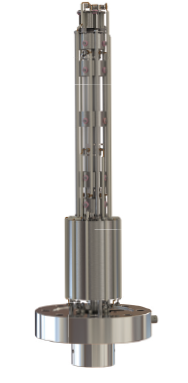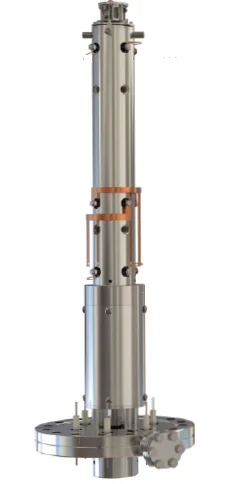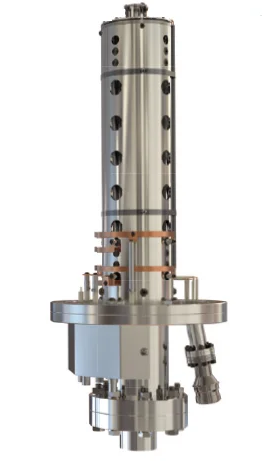Thermal desorption spectrometry (TDS) involves heating materials to release absorbed or adsorbed compounds into the gas phase. These compounds are then analyzed using mass spectrometry to identify material attributes at the molecular level. This approach is crucial for understanding material behavior under different environmental circumstances and analyzing contamination, degradation, and the composition of complex systems.
Advanced Material Analysis with the Hiden TDSLab Series
The TDSLab series represents the cutting edge of thermal desorption technology. These systems offer tailored solutions to meet the demands of advanced research fields, including thin films, photovoltaics, hydrogen in metals, semiconductors, and nuclear fusion materials.
Each system is designed to deliver precision, reliability, and versatility, accommodating a wide range of scientific endeavors, from fundamental research to industrial applications.
Applications
- Thin Film Research
- Studies on Photovoltaics
- Hydrogen in Metal Analysis
- Semiconductor Research
- Applications of Nuclear Fusion

Image Credit: Hiden Analytical
Software
- Real-time data monitoring
- Customizable 3D data analysis
- Comprehensive data analysis tools
- Simplified experiment management
- Intuitive interface
Performance
- Sensitivity: less than 0.01 weight ppm
- Accuracy: optimized UHV system to reduce background contributions
- Speed: High-speed PIC detector
Features
- UHV System: Customizable Multiport UHV Chamber
- Temperature Control: 0.5 to 50 °C/minute
- Temperature Limits: -100 to 1000 °C Sample Stage
TDSLab-6
For Semiconductor and Hydrogen Desorption Studies
- Exceptional Hydrogen Detection: Vital for materials analysis, capable of detecting hydrogen concentrations in steel as low as 0.01 ppm.
- 6 mm Diameter Triple Filter Quadrupole: Available for a broad range of applications, with a mass range of up to 510 amu.
- Ideal for studies on industrial materials’ barrier qualities, hydrogen embrittlement, and corrosion processes.

Image Credit: Hiden Analytical
TDSLab-9
For High Mass and High-Performance Hydrogen Studies
- High-Mass Capability: Capable of handling complicated samples and heavier isotopes in high-tech enterprises, with a maximum capacity of 1000 amu.
- 9 mm Diameter Triple Filter Quadrupole: Improves crucial analysis performance with high stability and resolution, such as D2/He separation.
- This tool is ideal for evaluating hydrogen diffusion, conducting photovoltaic research, and analyzing semiconductors, pushing the frontiers of materials science.

Image Credit: Hiden Analytical
TDSLab-20
For Precision Low Mass Isotope Analysis in Fusion Research
- High Mass Resolution: Accurately distinguishes light gas isotopes between D2 and He, as well as HD and 3He in nuclear fusion tests.
- 20 mm Diameter Triple Filter Quadrupole: A novel mass filter with ultra-high resolution enables accurate isotope analysis and light gas separation. Operates at ultra-high resolution up to 22.5 amu in zone H and high resolution up to 200 amu in zone 1.
- The TDSLab-20, designed for nuclear fusion research, also excels in materials science and development, offering valuable insights into fusion processes and sophisticated material interactions.

Image Credit: Hiden Analytical